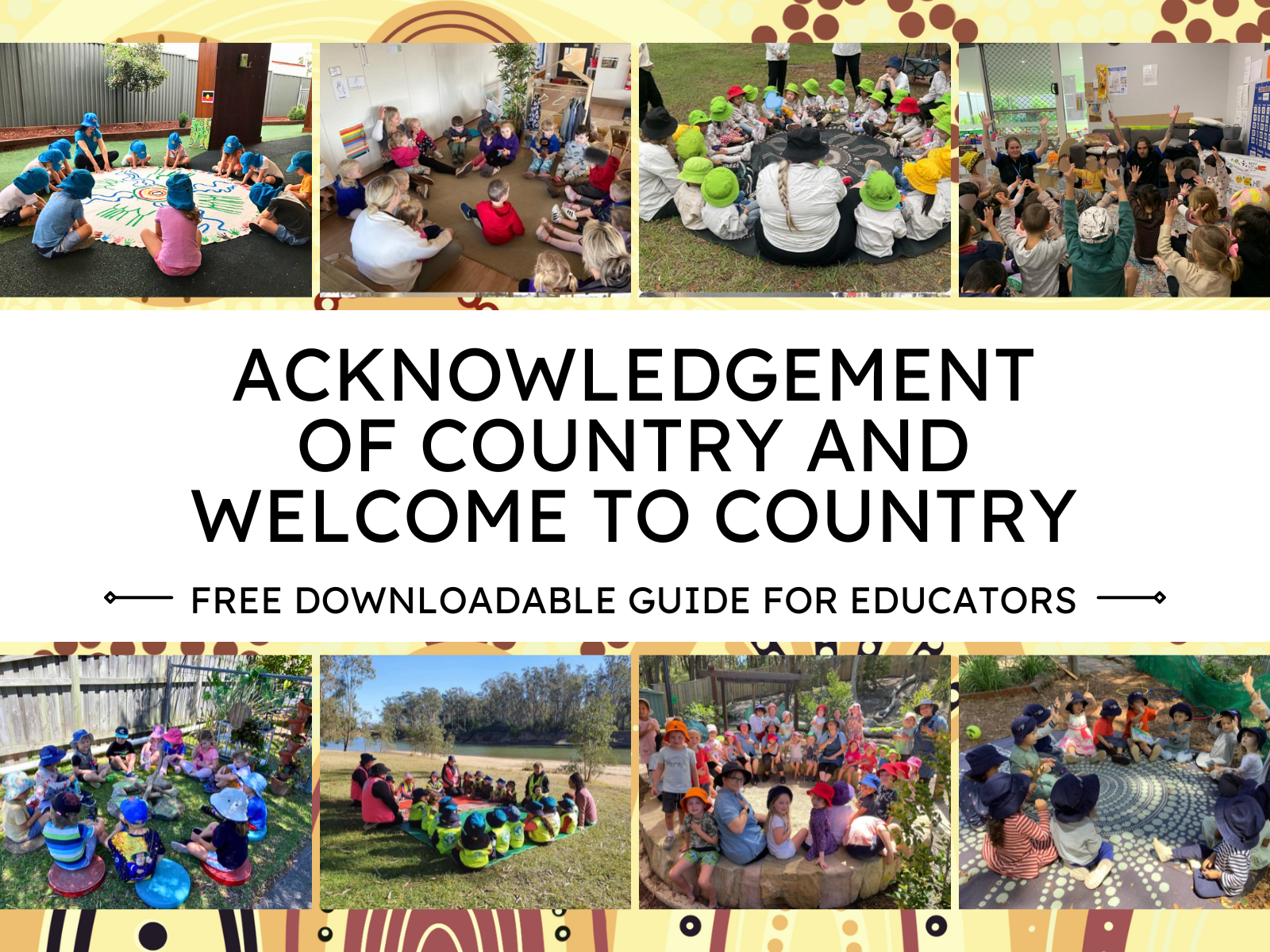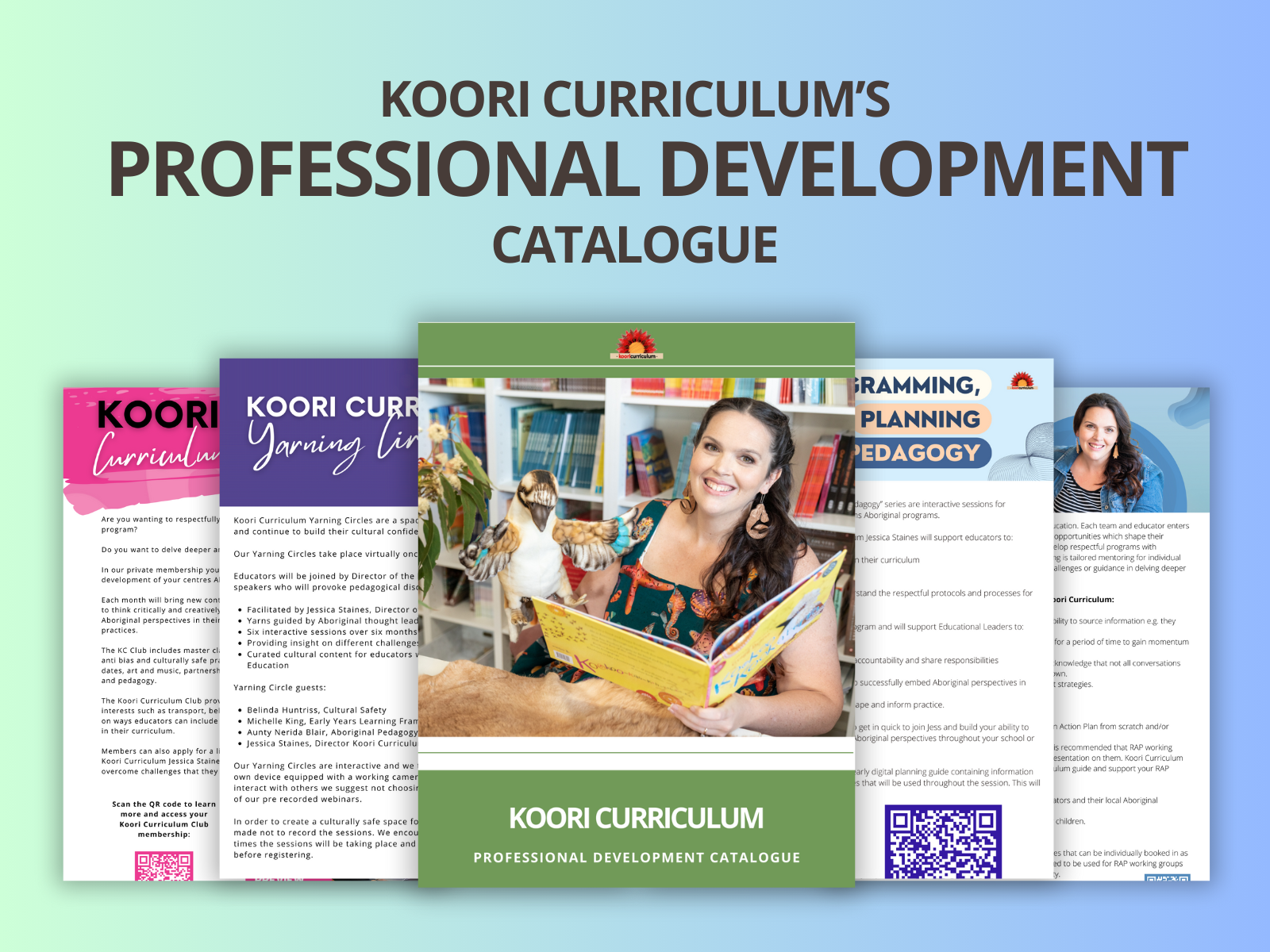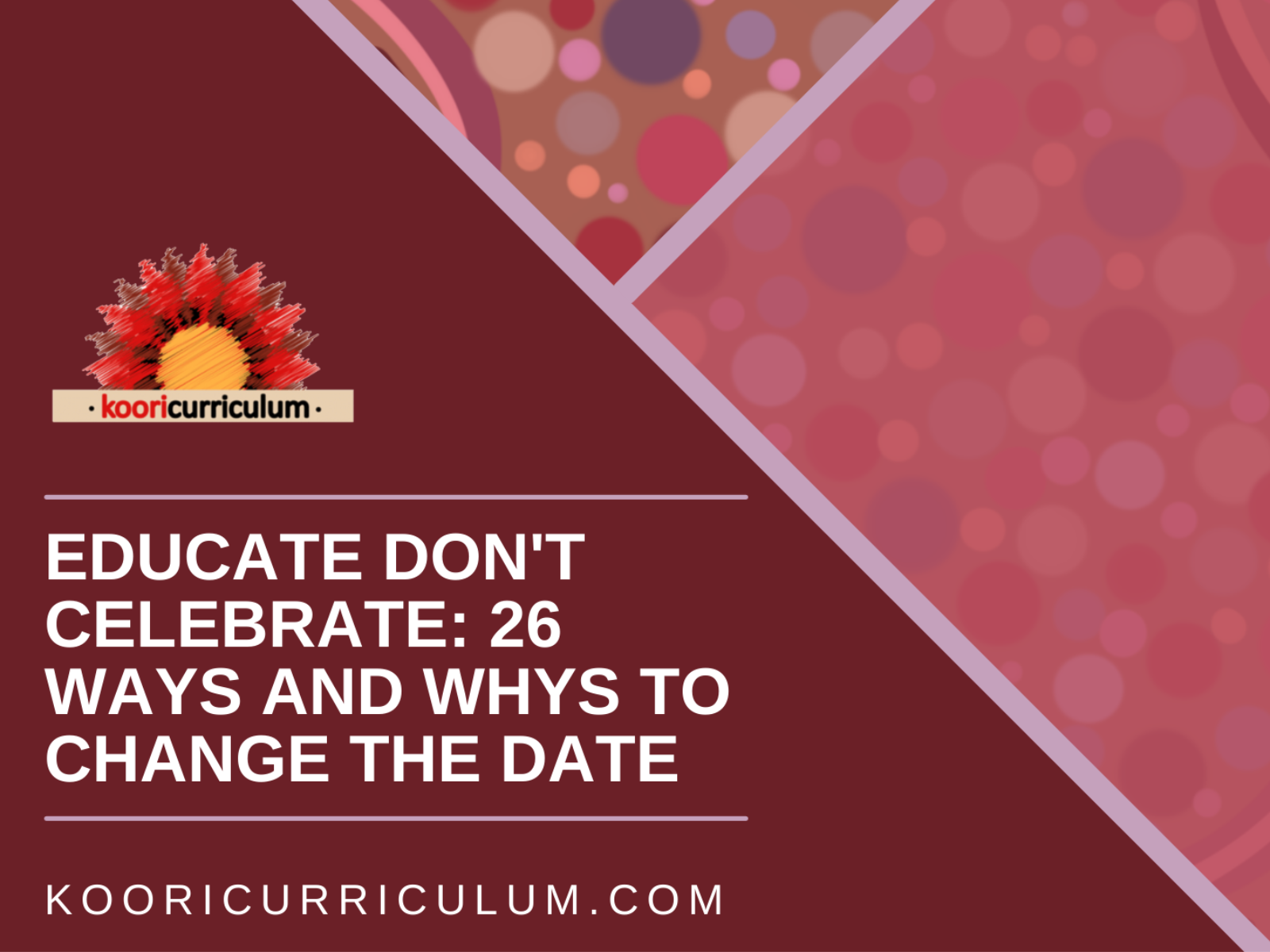
The new EYLF on the Shelf
The Koori Curriculum was delighted to see V2 of the EYLF finally come to fruition. Below, Director of the Koori Curriculum Jessica Staines shared her thoughts of what this means for early childhood educators in relation to Aboriginal programs.
What Jessica loves the most about V2 of the EYLF:
I really love the way that Aboriginal and Torres Strait Islander perspectives and ways of knowing, being and learning are interwoven throughout the whole document. Whilst there is a new Principle “Aboriginal and Torres Strait Islander Perspectives” I feel we are more holistically represented throughout all principles, practices and outcomes.
Whilst many educators already intrinsically value the importance of embedding Aboriginal perspectives and Reconciliation not everyone is there yet. A colleague of mine Catherine Hydon reminded me not so long ago that “some people need honey and some people need stick” V2 of the EYLF is now really saying this is no longer and optional extra as early childhood professionals you must do this work.
I also really liked seeing the updating of one of the key practices from “cultural competence” to “cultural responsiveness” I felt this was a much needed and welcomed change. Whilst people can disagree on the definition of cultural competence for me it always felt like an acquisition of culture and there are parts of our culture that are not for just everyone and anyone.
From a social justice point of view, I also really liked seeing the explicit connection being drawn between the work that early childhood educators are doing and the role we play in Closing the Gap as I truly believe that education is the strongest form of advocacy that there is.
Where Jessica thinks there is still room for improvement:
I questioned the use of the word custodians and wondered why the term Traditional Owners wasn’t used in the Principe “Aboriginal and Torres Strait Islander Perspectives” it states “Aboriginal and Torres Strait Islander peoples are the longest surviving Indigenous culture inthe world and the custodians of this land”; whilst people often use these terms interchangeably it did make me realise that there was no acknowledgement of Country at the beginning of the EYLF and as this is a desired practice within our profession it would have been nice to see that reflected in the framework. I thought it was amiss and should have been there. Additionally, later when I was reading one of the Outcomes it also talked about ways that mob cared for the land, as in past tense and I didn’t feel like it acknowledged the role that we continue to play today in caring for country.
The new principle also made mention of intercultural spaces being created where Western and Aboriginal and Torres Strait Islander knowledge systems work side by side. I feel like there was a bit of a missed opportunity here when planning the layout of the outcomes as this could and should have been demonstrated. Other curriculum frameworks such as NZ Te Whariki do this. This being said there is a loud and visible presence of cultural perspectives in each outcome which is something that the prior EYLF did not do well at all.
Lastly with the Practice: Play based learning and intentionality. I felt here there could have been a further examples given of how to embed Aboriginal and Torres Strait Islander perspectives intentionally through play with children
How important these changes are for children:
These changes will bring about so many positive outcome for both Indigenous and non-Indigenous children. There is so much that I love about the new EYLF but I though the new Sustainability principle deserves particular mention. I love that the new sustainability principle gives mention to children’s capacity to advocate and act for positive change. That is something that we need to instill in children that they understand what bias, racism and discrimination looks like and that they don’t stand for and know how to step up and by allys to First Nation peoples and anyone that finds themselves marginalised and oppressed.
What the Koori Curriculum is already doing in this space:
I found the EYLY to be reaffirming of a lot of the messages that the Koori Curriculum delivers to our community. There was an old belief in our profession that Including culture was only relevant if you had Aboriginal and Torres Strait Islander children attending your service. Our new principle clearly states you do so regardless because you are living and working of Aboriginal Land.
The Koori Curriculum has a range of professional services that will definitely help educators who are now looking for ways that they can holistically embed Aboriginal and Torres Strait Islander perspectives in their program. We ask that educators wanting support contact us at info@kooricurriculum.com so we can guide them in the right direction.
How these changes have effect on an Indigenous Voice to Parliament?
I think it will be a catalyst for educators in our profession and those within their communities and spheres of influence to reflect and do things differently. I think many that were once hesitant will now be prompted and supported to do this work, unlearn and relearn. With that will hopefully come a greater understanding of past acts of injustice that continue to disadvantage and oppress our peoples today and the role we have as educators in changing that.



